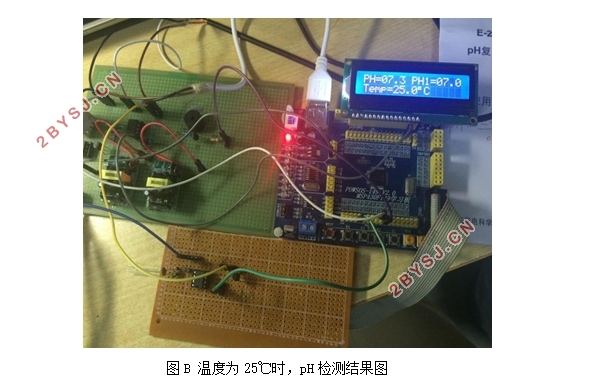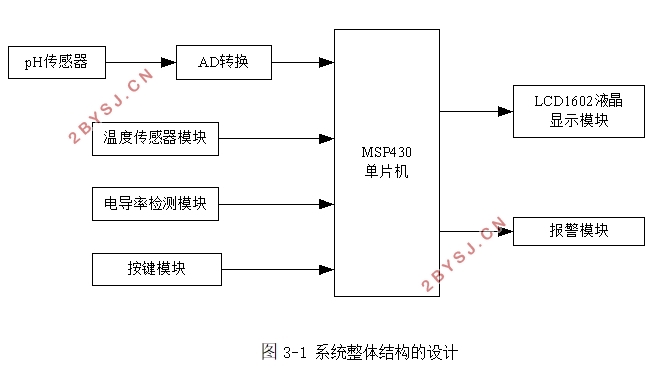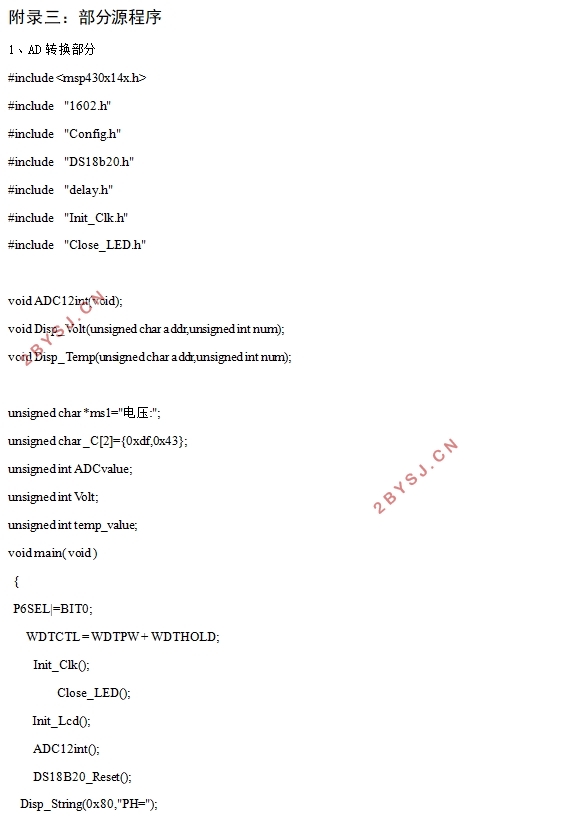便携式水质检测仪的设计
无需注册登录,支付后按照提示操作即可获取该资料.
便携式水质检测仪的设计(论文10000字)
摘要:为了增强河流水质情况的检测,本论文设计了便携式水质检测仪,可用于检测河水中pH值、温度、电导率等常规水质参数。阐述了温度、PH值、电导率参数检测的原理并确定了这三个参数的检测方法,选择了温度传感器、PH传感器和电导率检测模块以及信号采集放大电路,设计了基于MSP430F149控制的便携式水质检测仪。其中硬件模块主要有信号采集、液晶显示、蜂鸣报警等模块,软件模块包括C语言编写的下位机控制。为了减小温度对PH值和电导率检测的影响,采用软件编程的方法进行了温度补偿。实验结果表明经过软件温度补偿之后,PH值和电导率的测量误差都大大减小。
关键词:水质检测;MSP430F149;DS18B20;温度补偿
A Portable Water Quality Detector
Abstract: In order to enhance the detection of the water quality of the river, this paper designed a portable water quality detector, which can be used to detect the pH value, temperature, conductivity and other water quality parameters in the river water. This paper introduces the principles of temperature, pH value, conductivity parameter detection and determines the detection method of these three parameters. Choosinga temperature sensor, a pH sensor, conductivity detection module and signal acquisition amplification circuit to design a portable water quality detector based on low power MCU MSP430F149.The hardware module includes signal acquisition, LCD, buzzer alarm module and so on. The software module includes lower computer controlsoftwarewrittenbytheClanguage. In order to reduce the influence of temperature on pH value and conductivity, the method of temperature compensation is adopted in software programming.The results show that the influence of temperature on pH value and conductivity is greatly reduced after temperature compensation.
Keywords:water quality detecting; MSP430F149; DS18B20; temperature compensation



目录
1引言 7
1.1课题研究背景和意义 7
1.2国内外研究现状 7
2 设计内容 7
2.1系统设计 7
2.2硬件设计 7
2.3软件设计 8
3系统硬件设计 8
3.1 系统总体结构设计 8
3.2主控模块芯片设计 8
3.3检测模块设计 10
3.3.1pH值检测模块 10
3.3.2 温度检测模块 11
3.3.3 电导率检测模块 13
3.4液晶显示模块 15
3.5 A/D转换模块 15
3.6报警模块 16
3.7按键模块 16
4系统软件设计 16
4.1主程序流程图 17
4.2定时器中断流程图 17
4.3温度补偿 18
4.3.1 PH值温度补偿 18
4.3.2 电导率温度补偿 19
5实验结果与分析 20
6总结与展望 22
6.1总结 22
6.2展望 22
参考文献 23
附录一:实物图 24
附录二:部分源程序 25
